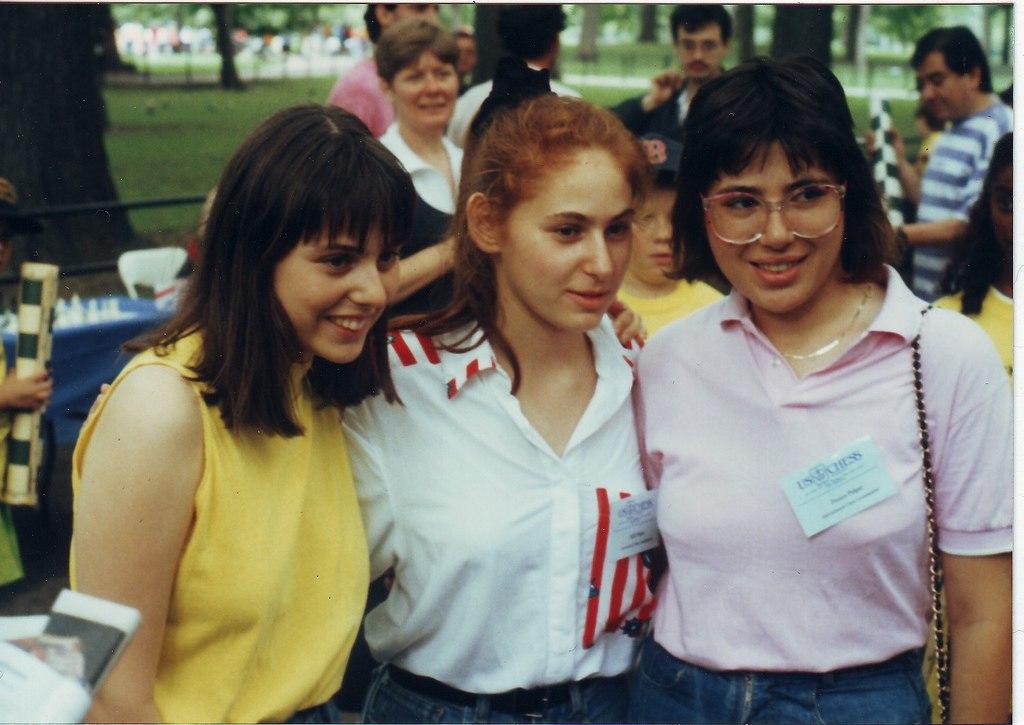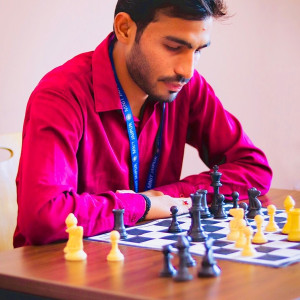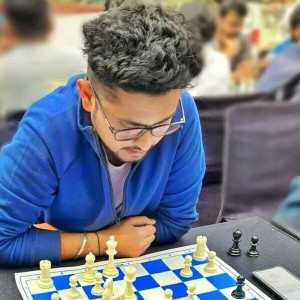Chess, a game synonymous with strategic depth and intellectual rigor, has historically been male-dominated. However, the narrative has been progressively reshaped by remarkable women chess players who have broken barriers, challenged stereotypes, and left an indelible mark on the game. This article delves into the rich history of women in chess, celebrates the achievements of female grandmasters, and examines the evolving landscape of chess for women.

Historical Overview of Women in Chess
Early Participation and Challenges
The involvement of women in chess dates back centuries, though their participation was often informal and overlooked. In the 19th century, societal norms largely excluded women from competitive play, with chess clubs and tournaments predominantly reserved for men. The prevailing belief was that chess required qualities stereotypically attributed to men, such as intense concentration and strategic thinking.
Breaking Ground: Vera Menchik
A significant breakthrough occurred in 1927 with the establishment of the Women's World Chess Championship. Vera Menchik, a pioneering figure, became the first Women's World Champion and held the title until her untimely death in 1944. Menchik's participation in top-level tournaments against leading male players challenged prevailing gender biases and demonstrated that women could compete at the highest levels.
Explore experts offering chess classes near me in Pune on Superprof.
The Evolution of Female Grandmasters
Nona Gaprindashvili and Maia Chiburdanidze
The latter half of the 20th century witnessed the emergence of formidable female players from the Soviet Union. Nona Gaprindashvili became the first woman to be awarded the Grandmaster title in 1978, followed by Maia Chiburdanidze in 1984. Both players not only dominated women's chess but also competed successfully in open tournaments, paving the way for future generations.

The Polgar Sisters: Redefining Excellence
The Polgar sisters—Susan, Sofia, and Judit—revolutionized women's chess through their exceptional achievements. Judit Polgar, in particular, is widely regarded as the strongest female player in history. She achieved the Grandmaster title in 1991 at the age of 15, breaking the previous record for youngest Grandmaster. Judit consistently competed—and triumphed—against the world's elite male players, reaching a peak ranking of No. 8 globally.
Improve your play with the best chess coaching near me on Superprof.
Women in Indian Chess: Trailblazers and Achievements
Subbaraman Vijayalakshmi: A Pioneer
Subbaraman Vijayalakshmi holds the distinction of being India's first female chess player to achieve the titles of Woman Grandmaster (WGM) and International Master (IM) in 2001. Her accomplishments have been instrumental in inspiring a generation of female chess players in India.
Koneru Humpy: Record-Breaking Prodigy
Koneru Humpy became the youngest woman ever to achieve the Grandmaster title in 2002 at the age of 15 years and 1 month, surpassing Judit Polgar's previous record. Her career is decorated with numerous accolades, including winning the FIDE Women's Rapid Chess Championship in 2019.
Harika Dronavalli and Vaishali Rameshbabu: Continuing the Legacy
Harika Dronavalli, a three-time World Women's Chess Championship bronze medalist, and Vaishali Rameshbabu, who recently became India's third female Grandmaster, exemplify the growing strength of Indian women in chess. Their successes underscore the expanding opportunities and support for female players in the country.
Challenges Faced by Women in Chess
Gender Disparities and Stereotypes
Despite significant progress, women in chess continue to face challenges, including gender stereotypes and underrepresentation. The historical exclusion from competitive play has had a lasting impact, and women often have to overcome societal expectations to pursue careers in chess.
Disparities in Prize Money and Opportunities
There remains a notable disparity in prize money between open and women's tournaments. For instance, the 2018 World Chess Championship had a total prize fund of $1.1 million, whereas the Women's World Chess Championship the same year had $450,000. Such differences highlight ongoing inequalities in the recognition and support of female players.
Learn from experienced mentors offering chess coaching near me in Mumbai.

Initiatives Promoting Chess for Women
FIDE's Commitment to Inclusivity
The International Chess Federation (FIDE) has undertaken initiatives to promote women's participation in chess. In 2022, FIDE declared the "Year of Women in Chess," aiming to increase female representation and encourage more women to take up the game.
Grassroots Programs and Online Platforms
Grassroots programs, all-girls chess camps, and the rise of online platforms like Chess.com and Lichess have made chess more accessible to women worldwide. These platforms provide opportunities for training, competition, and community building, helping to bridge the gender gap in chess.
The Future of Women in Chess
Breaking the Glass Ceiling
The increasing number of female Grandmasters and the success of women in open tournaments indicate a positive trend toward gender equality in chess. As societal attitudes continue to evolve and more opportunities become available, the presence and impact of women in chess are expected to grow.

Inspiring the Next Generation
Role models like Judit Polgár, Hou Yifan, and Koneru Humpy continue to inspire young girls to pursue chess seriously. Grassroots programs such as school chess clubs, scholarships for female players, and mentorship initiatives help nurture the next generation of champions.
In countries like India and China, where chess has become a part of the cultural fabric, many young girls see chess as not just a hobby but a viable career path. In Western nations, increased media coverage of women's chess and the rise of online streaming have further fueled this trend, providing visibility to talented female players and their journeys.
The Role of Technology in Bridging the Gap
Technological advancements in chess are leveling the playing field for women. Online chess platforms like Chess.com and Lichess have democratized access to high-quality training and competition. AI-powered tools like Stockfish and ChessBase allow players to analyze games and improve their skills independently, reducing reliance on expensive coaching.
The pandemic-induced online chess boom brought greater attention to women’s tournaments and female streamers. Players such as International Master Anna Rudolf and Woman Grandmaster Alexandra Botez have used platforms like Twitch and YouTube to engage a broader audience, making chess more inclusive and approachable for young women worldwide.
Female Grandmasters Today: Movers and Shakers
Ju Wenjun and Women’s World Champions
Ju Wenjun, the current Women's World Chess Champion, embodies the modern era of women's chess. Hailing from China, she has held the title multiple times, demonstrating resilience and tactical brilliance. Ju represents the growing dominance of Asian players in women’s chess and serves as an inspiration to aspiring champions.
Her rivalries with other top players like Kateryna Lagno and Aleksandra Goryachkina have brought added excitement to women's championships, showing that female chess can be as thrilling and competitive as its open counterparts.
Young Stars to Watch
The future of women’s chess looks bright, with several young players emerging as potential world champions. Some rising stars include:
- Bibisara Assaubayeva (Kazakhstan): A teenage prodigy who won the World Rapid Chess Championship in 2021 at just 17 years old.
- Vaishali Rameshbabu (India): Sister to young sensation Praggnanandhaa, Vaishali is making waves in women’s tournaments and aims to transition to more open events.
- Zhansaya Abdumalik (Kazakhstan): The first female Grandmaster from Kazakhstan, Zhansaya continues to climb the global rankings with her fearless style.

These players symbolize the increasing diversity and talent in women’s chess, promising a future where female players regularly compete with and against the world’s elite.
The Ongoing Debate: Separate Women’s Tournaments
Why Women-Only Tournaments Exist
Separate women’s tournaments have historically provided a platform for female players to compete, gain recognition, and develop their skills. For much of chess history, societal biases and limited opportunities meant women had fewer resources and less exposure to competitive play. Women-only events ensured they had a chance to thrive despite these challenges.
Calls for Integration
As more women excel in open tournaments, there are growing calls to integrate male and female competitions entirely. Advocates for integration argue that combining events would elevate the competition and break down remaining gender barriers.
However, others contend that women’s tournaments remain necessary to address the systemic inequalities that still exist. The debate reflects broader conversations about gender equality in sports and the steps needed to achieve it.
Conclusion
The story of women chess players is one of resilience, brilliance, and unrelenting progress. From the pioneering days of Vera Menchik to the revolutionary achievements of Judit Polgár, women have steadily carved their place in the chess world, inspiring generations to follow. The achievements of women grandmasters like Hou Yifan, Koneru Humpy, and Ju Wenjun are a testament to the immense talent and dedication female players bring to the game.
As initiatives promoting chess for women continue to grow and more young players enter the scene, the future of women’s chess looks brighter than ever. While challenges like gender disparities in prize money and representation remain, the progress made in recent decades is undeniable.
In a game defined by strategy and intellect, gender should never be a barrier. The stories of these trailblazing women remind us that the chessboard is a place where brilliance knows no bounds.
Summarise with AI:















